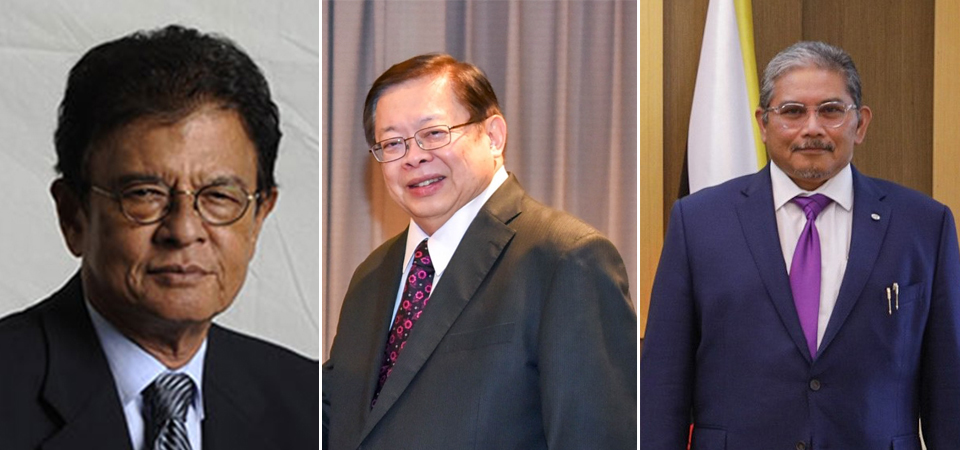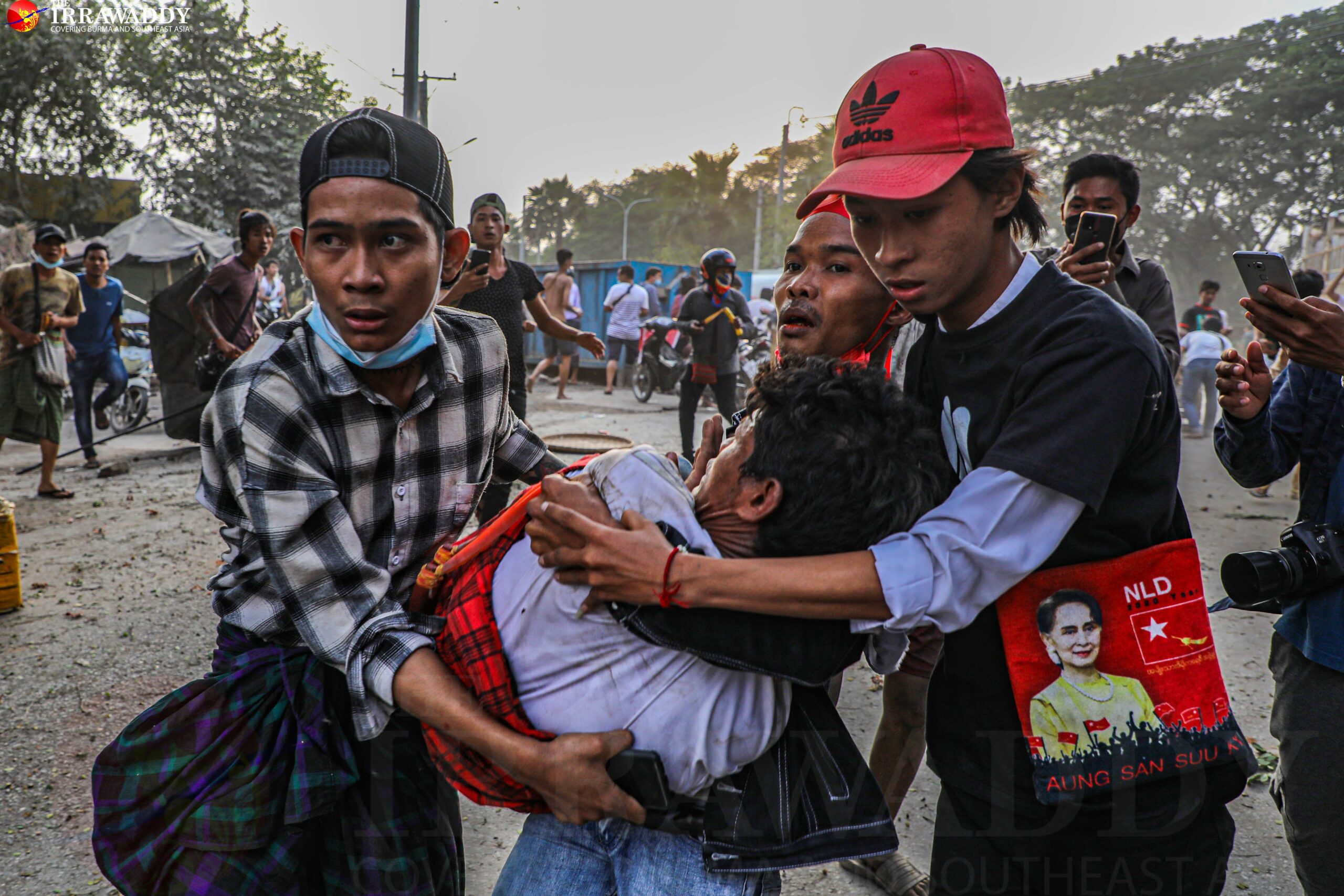ASEAN is expected to name its special envoy to Myanmar at the regional grouping’s ongoing foreign ministerial meeting this week. Originally scheduled for Monday, the announcement has been delayed after a last-minute objection from Myanmar torpedoed the group’s consensus choice. The Irrawaddy has interviewed various sources across ASEAN to find out what has been going on behind the scenes.
ASEAN Secretary General Dato Lim Jock Hoi and Bruneian Second Foreign Minister Erywan Yusof visited Naypyitaw on June 5-6 to discuss the appointment of an ASEAN special envoy and a group of advisers. (Brunei currently holds ASEAN’s rotating chair position.) A list of candidates drafted by the ASEAN members was presented for consideration. Of the candidates, two emerged as favorites for consideration: former Indonesian foreign minister Hasan Wirayuda and former Thai vice foreign minister Virasak Futrakul.
While the ASEAN chair remained tight-lipped, news reports surfaced in Singapore following the Naypyitaw trip that Myanmar preferred Virasak as the special envoy, given his experience and expertise. He served as Thai ambassador to Yangon in the mid-1990s. The news raised eyebrows in Jakarta, which was backing Hasan.
When the ASEAN foreign ministers discussed the Myanmar situation on the sidelines of the ASEAN-China special meeting in Chongqing, China on June 8, the junta’s foreign minister, Wunna Maung Lwin, said Naypyitaw still backed Virasak as the envoy. However, Indonesian Foreign Minister Retno Marsudi continued to push for Hasan’s leadership. According to various ASEAN sources, Malaysia further muddied the waters by suddenly throwing the name of veteran Malaysian diplomat Razali Ismail—a former special envoy to Myanmar—into the ring.
Also on the sidelines of the meeting, the earlier Thai idea that the ASEAN “special envoy” should not be a single individual but rather a group of diplomats working on different tasks was first officially put to Myanmar and formally discussed. Wunna Maung Lwin told the meeting that as a new proposal, it would need to be vetted by the military junta before a decision could be made. This further delayed the decision on the special envoy, as the ASEAN chair had to ponder once again who would be the most suitable candidate. In the end, there was no consensus on how to proceed.
The Chongqing meeting set the stage for a prolonged tussle—both between ASEAN and Naypyitaw and among ASEAN members—over the choice of envoy. Throughout the envoy saga, the ASEAN chair has been reluctant to preempt any ASEAN member’s judgement on the issue, despite its prerogative to do so, which is one of the reasons the selection process has dragged on.
Further complicating the process was the fact that in late June and early July, the ASEAN chair had to attend a few G7 and G20-related meetings, while also observing end-of-Ramadan rites.
On July 13, the ASEAN foreign ministers met again, on the sidelines of the ASEAN-US special ministerial meeting. The choice of ASEAN special envoy was once again discussed, this time without the participation of Myanmar. They now agreed that Erywan would take up the position as the ASEAN special envoy.

According to a highly placed source, Thailand decided at this meeting to withdraw Virasak’s name to make it easier for the ASEAN chair to act. With the consensus now solidifying around Erywan, Retno finally yielded and the Bruneian was suddenly put forward as a candidate to head an envoy team, with Hasan, Virasak and Razali serving as advisers. The three readily agreed to the proposal. Additionally, a senior diplomat from Cambodia, the upcoming ASEAN chair, would be included.
Two days before the ASEAN meeting this week, however, Myanmar junta leader Senior General Min Aung Hlaing asserted his preference for Virasak, adding that ASEAN’s new proposal made it impossible to move ahead. This is an interesting development, to say the least, as Myanmar had known for some time that Erywan would be the head of ASEAN team. Myanmar now insists it will have to consider the proposal to make Erywan the head of the team.

At the meeting on Monday, Myanmar adopted a hardline attitude towards ASEAN, especially over the draft Joint Communique that was scheduled to be released on the day, only to be delayed. Some ASEAN members want a commitment from Myanmar to release all political prisoners including Daw Aung San Suu Kyi, as well as foreigners detained since the coup. In addition, there has been a strong appeal to include a sentence in the statement calling for swift and full implementation of ASEAN’s five-point consensus, reached in April, on solving the crisis in Myanmar.
After six months of engagement with the Myanmar junta, it is clear that the ASEAN chair wants to earn the trust of all stakeholders, and, accordingly, is proceeding with the appropriate caution needed to reach a decision. The sources expressed disappointment with Naypyitaw’s response to ASEAN’s effort to end the current stalemate. At one point, they said, the chair even threatened to add a paragraph disowning Naypyitaw.
The ASEAN foreign ministers expected Myanmar to quickly approve Erywan’s leadership and move forward with the implementation of its five-point consensus, especially the immediate deployment of an ASEAN team on the ground to help with the humanitarian crisis in the country, which is being worsened by the collapse of the health system amid a raging COVID-19 outbreak.
You may also like these stories:
Junta Massacres 40 People in Myanmar Resistance Stronghold During July
Myanmar Junta Releases Detained Doctors and Civil Servants
US Dismisses Myanmar Junta’s Election Plan

















